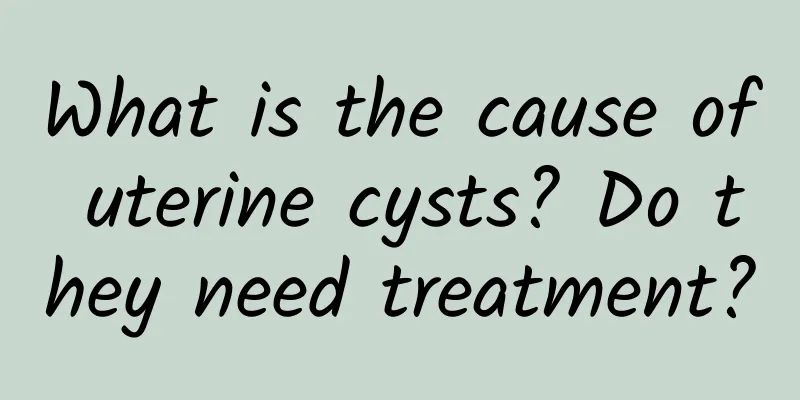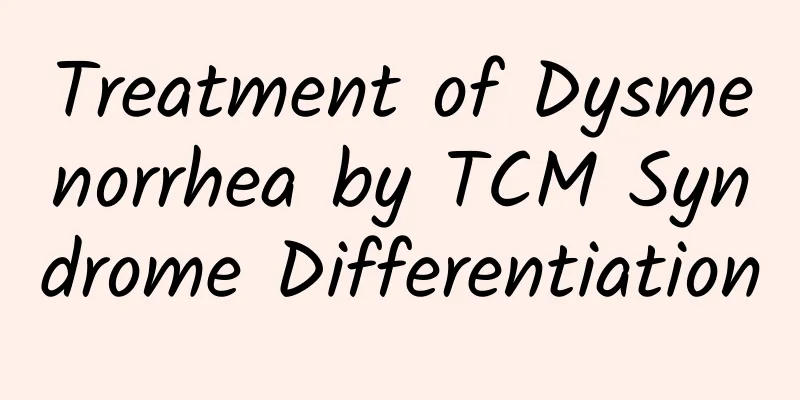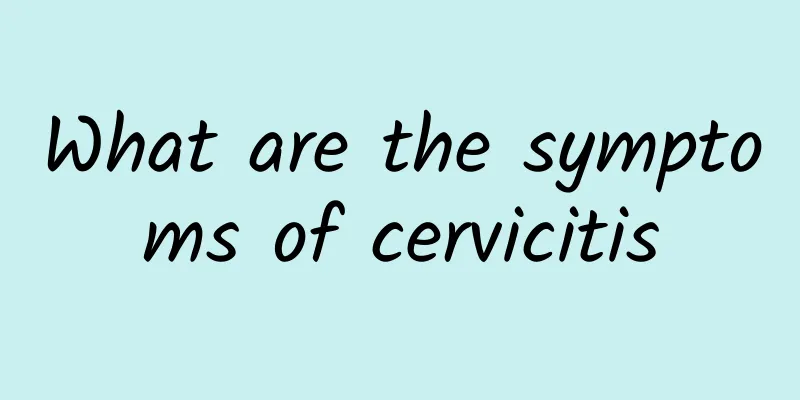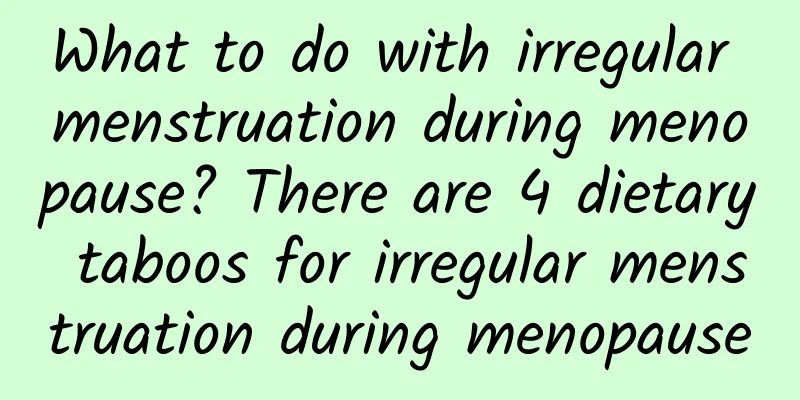What is the cause of uterine cysts? Do they need treatment?

|
Uterine cyst is a common disease of the female reproductive system. It is mainly caused by the formation of cystic structures containing liquid or semi-solid substances in the uterine tissue. Generally, it is necessary to decide whether to treat it based on the nature and symptoms of the cyst. The causes of its formation include genetics, environmental factors, physiology and pathology. The treatment methods can be selected from drugs, surgery or observation. 1 Causes of uterine cysts Genetic factors: Women with a family history of this disease are more likely to suffer from this disease. Genetics may act on tissue cell regulation, increasing the risk of cyst formation. Environmental factors: Long-term exposure to endocrine disruptors in the environment, such as plasticizers and pesticides, can lead to abnormal hormone levels in women, which in turn can cause cysts. Modern lifestyles such as high stress, irregular work and rest, and unhealthy diet are also contributing factors. Physiological factors: Female hormone fluctuations directly affect uterine health. Excessive secretion of progesterone and estrogen can lead to abnormal development of endometrial glands and the formation of cysts. Pathological factors: Common pathological causes include endometrial inflammation, adenomyosis, and even chronic inflammatory stimulation. In rare cases, cysts may be associated with more serious conditions such as ovarian cancer, so larger cysts require special attention. 2Do uterine cysts need treatment? Treatment depends on the size, nature, and symptoms of the cyst: Asymptomatic patients and patients with small cysts can be observed regularly and ultrasound examinations can be performed every 3-6 months to understand changes. If the cyst remains stable and has no obvious symptoms, immediate treatment is not necessarily required. For those with milder symptoms: If there are only mild menstrual abnormalities or lower abdominal distension and pain, you can take medication under the guidance of a doctor, such as taking birth control pills, progestins, etc. to balance hormone levels. Severe symptoms or enlarged cysts: When the cysts bleed, become infected, or continue to grow and compress surrounding organs, surgical treatment should be considered. Common surgeries include cystectomy with preservation of the uterus, partial hysterectomy, or total hysterectomy, depending on the patient's age and reproductive needs. Uterine cysts themselves are not cancer, but certain pathological types may have the risk of malignant transformation. If you experience abnormal menstruation, heavy bleeding, severe abdominal pain, or rapid cyst growth, you should see a doctor as soon as possible for a clear diagnosis. The above measures can help control the development of cysts and prevent potential complications. |
<<: What medicine should adults take for influenza
>>: Does premature ovarian failure cause fatty liver?
Recommend
Candidates' stomachs sound alarms, weight soars, chitin cleanses intestines and loses fat
Exam season is approaching. Many students study h...
What are the main symptoms of cervical erosion?
Cervical erosion is a common gynecological diseas...
The causes of vulvar leukoplakia are also manifested in many aspects.
Vulvar leukoplakia is a very common disease in wo...
Jun Ji-hyun's favorite! Fried chicken + beer is high in calories
The Korean drama "My Love from the Star"...
Pelvic inflammatory disease has many causes and treatment needs to be early
Pelvic inflammatory disease is a common gynecolog...
Key points for daily care of patients with amenorrhea
If a woman experiences amenorrhea, she should not...
Prevention and care knowledge of pelvic inflammatory disease
Pelvic inflammatory disease not only brings a lot...
Experts explain the dietary considerations for irregular menstruation
Irregular menstruation is what we often call irre...
How long can I walk after an abortion? Post-abortion care measures
Women who undergo abortions will suffer great dam...
What is the cause of ovarian cysts?
What is the cause of ovarian cysts? What causes o...
Heavy menstrual bleeding and uterine fibroids can cause anemia! Must supplement folic acid, iron, and vitamin C for balanced nutrition
Women who tend to have pale faces, frequent dizzi...
Brief introduction: Common treatment methods for uterine tumors
As the incidence of uterine tumors continues to r...
3 tips for post-workout nutrition
Appropriate nutritional supplementation after exe...
What fruits can't be eaten after abortion surgery? What foods can't be eaten after abortion surgery?
Abortion is a common gynecological surgery and a ...
Is fat the culprit of obesity? A low-fat diet won’t make you lose weight! Study: Carbohydrates are the key
Losing weight requires controlling your diet, and...









